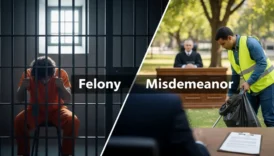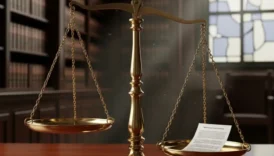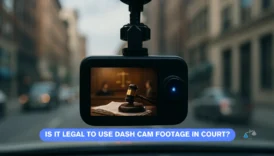Can My Phone Records Be Subpoenaed Without My Knowledge?

Phone records contain sensitive details about your calls, texts, and sometimes even location history. Understandably, many people worry about whether these records can be accessed by others—especially without their knowledge. Under the law, phone records can indeed be subpoenaed in certain situations, usually as part of a criminal investigation, civil lawsuit, or government inquiry. Importantly, you may not always be notified when your records are subpoenaed, particularly if disclosure could compromise an investigation. Knowing when and how your records can be accessed helps you understand your privacy rights and what protections exist.
When Can Phone Records Be Subpoenaed?
Phone records are often sought in both criminal and civil cases because they can provide crucial evidence about communication patterns, timelines, and even relationships between parties. A subpoena is a formal legal request requiring a phone company or service provider to produce these records. Unlike casual requests, a subpoena carries the authority of the court, and compliance is mandatory.
Common Situations Where Phone Records Are Subpoenaed
- Criminal Investigations
- Law enforcement may request phone logs, text message metadata, or location history to support investigations into crimes like fraud, drug trafficking, or violent offenses.
- Example: Investigators might subpoena phone records to verify whether a suspect was near the scene of a crime.
- Civil Lawsuits
- In divorce, custody, or personal injury cases, attorneys may request phone records to demonstrate communication patterns or disprove claims.
- Example: In a custody battle, records showing late-night or excessive calls could be presented to challenge a parent’s reliability.
- Business Disputes
- Companies may seek employee or corporate phone logs to prove breaches of contract or improper communication with competitors.
- Financial or Governmental Investigations
- Agencies like the IRS or regulatory bodies may subpoena records during fraud or corruption inquiries.
What Information Subpoenas Typically Cover
- Call Logs: Incoming and outgoing call times, durations, and numbers dialed.
- Text Message Metadata: Information about when messages were sent and received, though usually not the content itself without special legal permissions.
- Location Data: Cell tower “pings” that can show approximate whereabouts.
- Account Information: Subscriber name, billing details, and device identifiers.
Who Can Issue a Subpoena?
- Courts: Judges frequently authorize subpoenas.
- Attorneys: In civil cases, attorneys often issue subpoenas during discovery, though these are subject to court oversight.
- Grand Juries: In criminal matters, subpoenas can be part of a grand jury investigation.
Key Point
Phone records are not casually available; they are accessed through structured legal processes. While this provides some protection for personal privacy, the fact remains that your phone records can be obtained without your permission whenever a case meets the legal threshold for relevance.
Do Phone Companies Notify You About a Subpoena?
One of the most common concerns people have is whether they will be told if their phone records are subpoenaed. The answer depends heavily on the type of case, the jurisdiction, and whether law enforcement or private parties are involved.
Criminal Cases and Government Investigations
- Delayed Notice: In criminal cases, especially those involving ongoing investigations, courts often issue subpoenas along with gag orders or secrecy provisions. These prevent phone companies from notifying you, because disclosure could compromise the investigation.
- National Security and Federal Law: Under certain federal statutes, like the USA PATRIOT Act, service providers may be legally barred from telling you that your records were obtained.
- After-the-Fact Notification: Sometimes you may only learn about the subpoena later, when charges are filed or evidence is presented in court.
Civil Cases
- More Transparency: In civil lawsuits (like divorce or personal injury cases), the process is more transparent. Attorneys who subpoena records usually must notify the opposing party, giving them a chance to object before the records are released.
- Opportunity to Challenge: If your phone records are sought in a civil case, you or your attorney can often file a motion to quash (challenge) the subpoena on grounds like irrelevance or overbreadth.
Phone Company Practices
- Major Carriers: Providers such as Verizon, AT&T, and T-Mobile comply with subpoenas but usually do not notify customers if the subpoena explicitly prohibits disclosure.
- Transparency Reports: Some companies publish yearly reports showing how many subpoenas or government requests they received, but these reports are broad statistics—not individual notifications.
- User Policies: Phone companies often state in their terms of service that they will comply with lawful requests and that users should not expect notification in all circumstances.
Example Scenario
- A person under investigation for tax fraud may have their phone records subpoenaed by the IRS. Because a secrecy order accompanies the subpoena, the phone company cannot notify the individual. They may not learn about it until the trial begins.
Bottom Line
You may not be told if your phone records are subpoenaed. In criminal cases, secrecy is common. In civil cases, notice is more likely, but it depends on the rules of your jurisdiction and the specifics of the subpoena.
Legal Protections and Privacy Limits
Phone records exist at the intersection of personal privacy rights and the justice system’s need for evidence. While there are legal protections in place, these protections have limits, and the scope of what can be accessed depends on the type of case and applicable laws.
Constitutional Protections
- Fourth Amendment (U.S.): Protects against unreasonable searches and seizures. However, courts have ruled that individuals generally have limited privacy expectations in phone records held by third-party companies (like carriers).
- Content vs. Metadata: The actual content of your phone calls and texts is typically afforded greater protection than metadata (like numbers dialed or call duration). To access content, law enforcement often needs a search warrant based on probable cause.
Statutory Protections
- Stored Communications Act (SCA): Governs access to stored electronic communications and records. While metadata can be obtained with a subpoena, accessing the content of communications usually requires a warrant.
- State Privacy Laws: Some states provide additional privacy protections beyond federal law, imposing stricter requirements for subpoenas and notifications.
Limits of Privacy
- Metadata Is Easier to Access: Courts have consistently ruled that data like call logs and cell tower locations can be subpoenaed with lower legal thresholds.
- Employer-Owned Devices: If you are using a phone issued by your employer, your privacy rights may be significantly reduced, and records may be more easily obtained in workplace disputes.
- Third-Party Access: Once information is shared with third parties (like apps or messaging platforms), your ability to challenge subpoenas diminishes.
Civil vs. Criminal Context
- Criminal Cases: The bar for access is generally higher, with warrants often required for content. But secrecy orders mean you may not know your data has been accessed.
- Civil Cases: Lawyers can issue subpoenas during discovery, but you or your attorney may challenge them in court.
Example Scenario
A person suspected of insider trading may have their call records and text metadata subpoenaed by federal investigators. The content of the conversations, however, would likely require a search warrant. Meanwhile, in a civil lawsuit, a spouse in a divorce case might subpoena call logs to show frequent contact with another individual, but not the substance of the calls.
Key Takeaway
While laws protect the content of your communications more strongly, the surrounding data—who you contacted, when, and for how long—remains relatively vulnerable to subpoenas. This balance between privacy and legal necessity means that full confidentiality of phone records is not guaranteed.
How Subpoenaed Phone Records Are Used in Court
Once subpoenaed, phone records often become critical pieces of evidence in both criminal prosecutions and civil disputes. Their value lies not in the content of conversations (which is usually harder to obtain) but in the patterns, timing, and connections they reveal.
In Criminal Cases
- Establishing Timelines: Prosecutors use phone logs to show where a defendant was and who they were contacting at key moments.
- Corroborating Witnesses: Phone records can confirm or disprove witness statements about calls made or received.
- Location Tracking: Cell tower records can place a suspect near a crime scene, even if exact GPS data isn’t available.
- Linking Conspiracies: Multiple defendants in organized crime or fraud cases can be tied together through call frequency and timing.
In Civil Cases
- Divorce and Custody Battles: Attorneys may use call logs to show evidence of infidelity, harassment, or parental neglect.
- Business Disputes: Records may prove unauthorized communications between employees and competitors.
- Personal Injury Lawsuits: Phone records can be used to prove distracted driving if someone was texting at the time of an accident.
Types of Evidence Extracted
- Call Logs: Date, time, and duration of calls.
- Text Metadata: When and to whom messages were sent (but not usually the content).
- Location Data: Which cell towers connected to the device during specific times.
- Billing Information: Subscriber details linking the phone to an individual.
Example Scenario
In a homicide trial, prosecutors subpoena the suspect’s phone records. They reveal that the suspect made multiple calls to an accomplice minutes before and after the crime, and cell tower data places the phone near the scene. Even without call content, this evidence becomes powerful in securing a conviction.
Presentation in Court
- Records are typically introduced through expert testimony from investigators or data analysts.
- Defense attorneys may challenge their accuracy, relevance, or method of acquisition (e.g., arguing that the subpoena was overly broad).
- Judges determine admissibility, balancing privacy concerns with evidentiary value.
Bottom Line
Phone records often provide the “digital breadcrumbs” needed to piece together events. While they rarely prove guilt or liability on their own, when combined with other evidence, they can strongly influence a judge or jury’s decision.
Frequently Asked Questions (FAQs)
1. Can my phone records really be subpoenaed without me knowing?
Yes. In criminal cases, secrecy orders often prevent phone companies from notifying you. In civil cases, notice is more common, but it depends on jurisdiction.
2. What information can be obtained through a subpoena?
Typically, call logs, text metadata, billing information, and sometimes location data. Content of calls or texts usually requires a warrant.
3. Can deleted text messages be retrieved with a subpoena?
Possibly. While carriers don’t usually store content long-term, forensic recovery methods may be used if data still exists on a device.
4. Do phone companies always comply with subpoenas?
Yes. Subpoenas are legally binding orders, and service providers must comply unless successfully challenged in court.
5. Can I fight a subpoena for my phone records?
Yes, through a motion to quash or limit the subpoena, usually with the help of an attorney. Success depends on relevance and scope.
6. Are phone records private under the law?
Partially. Content is strongly protected, but metadata (like numbers dialed) is less protected and easier to obtain.
7. How far back can subpoenas request phone records?
It varies. Some providers retain records for months, while others keep them for years, depending on company policies and state laws.
8. Will a subpoena reveal my location history?
Yes, if it includes cell tower connection data. This can place you in a general area at specific times.
9. Can employers subpoena employee phone records?
Only in the context of a lawsuit or legal proceeding. However, if it’s a company-owned phone, access may already be allowed under internal policies.
10. How will I know if my records were used in court?
You’ll usually find out if your case proceeds to trial, when evidence is disclosed to all parties. In criminal cases, this may come later in the process.






